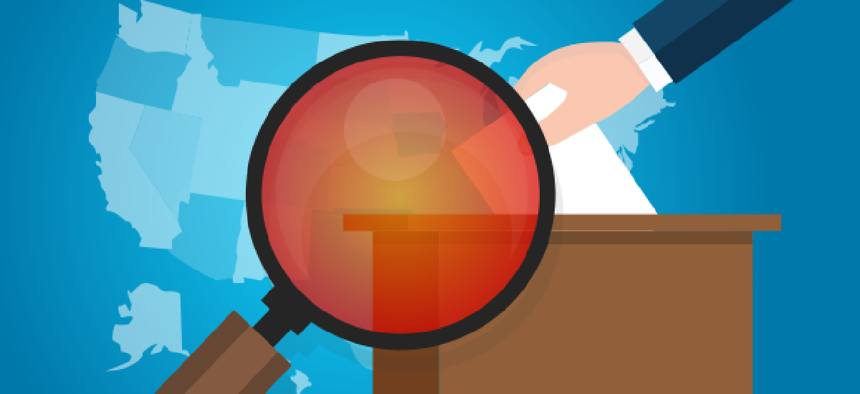Congress poised to put up $380 million for election security

A day after members of the Senate Intelligence Committee called for federal funding to assist states in securing their voting systems, the committee's chairman said the forthcoming spending bill will include an expected $380 million in grant funding for that purpose.

A day after members of the Senate Intelligence Committee called for increased federal funding to assist states in securing their voting systems, Chairman Richard Burr (R-N.C.) said the forthcoming omnibus funding bill will include an expected $380 million in grant funding for that purpose.
Burr made the announcement during a March 21 hearing on election security where members of Congress interviewed Secretary of Homeland Security Kirstjen Nielsen, former DHS secretary Jeh Johnson and a mix of other officials to further flesh out additional action.
The committee asked for updates from DHS on election security efforts with states, discussed ways to better assist communication between states and agencies and pondered the need for a unified cyber doctrine to deter future state-sponsored election interference efforts. Senator Susan Collins (R-Maine) questioned whether DHS was acting with enough urgency, noting that voting has already begun for the 2018 mid-term election season.
Nielsen said the department was speeding up security clearances for state and local officials, with 20 being given full security clearances to received classified threat briefings and others being given interim clearances. Nielsen also said 15 of the 19 states that requested in-depth vulnerability assessments from DHS have had those requests fulfilled, and promised the remaining states would get assistance before election day.
"Not only is this of extreme urgency to the department, but … we are prioritizing election efforts and risk and vulnerability assessments for our state and local partners over all other critical infrastructure sectors," said Nielsen.
Intelligence agencies have testified to Congress that they believe Russia and perhaps other nations intend to continue election interference efforts during the 2018 mid-term elections.
At the hearing, Burr asked Jeanette Manfra, DHS' assistant secretary for cybersecurity and communications, if the department had seen any evidence thus far "that concern you that an adversary might be testing the systems."
"Not at this time," Manfra replied.
Eric Rosenbach, co-director of the Belfour Center for Science and International Affairs, told lawmakers that much like recent reports about Russian-linked hacking groups targeting critical U.S. infrastructure entities, it is likely there are additional efforts related to probing and perhaps compromising the election system.
"I just don't believe when someone tells me we know everything about what the Russians did or didn't do," said Belfour.
The committee took pains to insist that federal efforts should not be interpreted as an attempt to usurp the central role that state and local governments play in administering elections.
However, Sen. Ron Wyden (D-Ore.) seemed to break with his colleagues, noting that no state has the budget, intelligence capabilities or technical resources to defend against cyberattacks by modern day nation-states. Over the past year, Wyden has been critical of voting machine manufacturers and called the lack of paper ballots a national security threat.
"Leaving our defenses to states and local entities, in my view, is not an adequate response," said Wyden. "Our country needs baseline, mandatory, federal election security standards and what I'm talking about here are paper ballots and post-election, risk-limiting audits."
In House of Representatives, meanwhile, Rep. Bennie Thompson (D-Miss.), ranking member of the Homeland Security Committee, said he was pleased with the funding commitment, but wants more attention paid to election security.
"Make no mistake, this is a solid down payment on securing our federal elections in 2018 and 2020, but much more must be done," he said.


